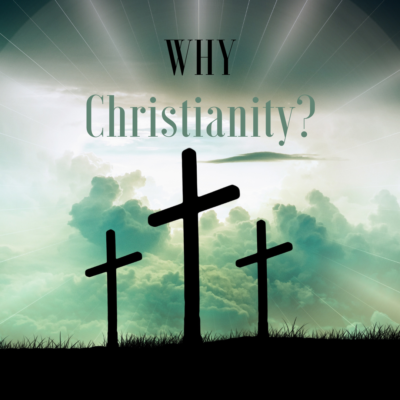by Suellen | Project 2013: Read The Bible
Psalm 68-69
These two psalms are longer than many and they reflect very different moods. Psalm 68 extols the greatness of God as He “rides upon the earth.” There is reflection of His appearance to the Israelites at Mt. Sinai. The earth quaked and the heavens dropped rain at the presence of God.
“The chariots of God are myriads – thousands upon thousands.” (68:17) Such majesty! Such grandeur and glory! God is being extolled as the God of all the earth!
Ephesians 4 quotes this psalm. In speaking of the ministry gifts which God will bring to the earth, it is written:
“You have ascended on high,
You have led captivity captive,
You have received gifts among men,
Even among the rebellious,
That the Lord might dwell there.”(68:18)
David is prophesying again, as he often does.
Then the mood changes in Psalm 69, as David has an urgent plea for help in trouble. Actually, as we read this, it is clear that this too is prophetic. This time, many references to the crucifixion of Jesus come up, as they have in other psalms.
“Zeal for Your house has consumed me, and the reproaches of those who have reproached You have fallen on me.” (69:9) (John 2:17)
“They also gave Me gall for My food, and for My thirst they gave Me vinegar to drink.” (69:21) (Matthew 27:34)
Then the psalm even mentions Judas when it says,
“Let their dwelling place be desolate; let no one live in their tents.” (69:25) (Acts 1:20)
So the sorrowfulness is really referring to the coming work of Jesus – as He pays the price for us. That’s why the psalm ends in such an upbeat tone. Israel – and the earth itself, will praise God. His descendants shall inherit the advantage bought by God, and those who “love His name,” shall dwell in it.
As you read these psalms, think in terms of prophecy. You may discover other lines in which the future is being projected on the screen.
Romans 8: 1-17
Flesh versus spirit. That’s one of our major challenges as we live our lives for Christ.
When God created man, He created us in three parts: spirit, soul, and body. The spirit died when man first sinned, but came back to life through Jesus Christ – thus the born again experience. The soul is the part of man which consists of the mind, the will, and the emotions – the seat of personality. The spirit is the part of man which is aligned with God and hears from Him.
So this is the problem. Your soul and mine, before we were born again, was mostly self-centered. Me, me, me! If it feels good, do it!
So along comes the Spirit. After we are born again, our spirits come alive and are Christ-centered. This part of us wants to live for God and for His glory. Our spirits want to do what is right and be led by God.
It’s like there are two different sources of strength within us. If we let our souls go unchecked, our flesh rules. If we live by the spirit, we are in line with God’s desires for us. He is ordering our steps, bringing us direction and favor. (Plus grace to live our best lives).
If we keep these concepts in mind as we read Romans 8, it’s easier to understand.
“To be carnally minded is death, but to be spiritually minded is life and peace. Because the carnal mind is enmity against God; for it is not subject to the law of God, nor indeed can be. So then, those who are in the flesh cannot please God.” (V. 6-7)
“We did not receive the spirit of bondage again to fear, but we have received the Spirit of adoption by whom we cry out, ‘Abba, Father.'” (V. 15)
To be led by the Spirit is the healthiest thing we can do – not only for ourselves, but also for all those around us. “Abba, Father” literally means “Daddy, God.” When we are in agreement His Spirit, we are in agreement with all that is good – for us and to us.
by Suellen | Project 2013: Read The Bible
Psalms 63-67
This group of psalms starts with David in the wilderness of Judah, thirsting for God in a dry and weary land. He feels dry spiritually as well as naturally.
Have you ever been there? I’m sure that you have, just as I have. Maybe some jolting things have happened in your life and you feel that God is far away from you. But He isn’t.
David knows the secret. Just as we have said before, he begins to praise his God. “Because your lovingkindness is better than life, my lips will praise You. Thus I will bless You while I live; and I will lift up my hands in Your Name.”(63:3-4)
This moves into the next psalm, which once again speaks of God’s goodness in the midst of oppression. He is the Tower of strength for all who call upon Him.
Finally we see nothing but praise coming from David. He calls upon people to shout and praise exuberantly the One who is the answer for all things. He is the “confidence of the ends of the earth and of the far-off seas.”(65:5).
“Let the peoples praise You, O God; let all the peoples praise You. Then the earth shall yield her increase; God, our own God, shall bless us. God shall bless us and all the ends of the earth shall fear Him.” (67:5-7)
Exuberant praise to Almighty God will change your focus and your attitude. As you praise Him, as David does, your heart will begin to swell with confidence and strength. You will know that your God is for you also.
Romans 6-7
Now we see the answer to “sloppy grace.” Paul continues in his discussion of the law versus grace. Just as Christ died and was resurrected to a new life, so are we when we give our lives to Him. In fact, water baptism, in which we are submerged under water and then lifted up to new life is symbolic of our own death to sin and rebirth to righteousness.
“The wages of sin is death, but the gift of God is eternal life in Christ Jesus our Lord.”(6:23)
In chapter 7, Paul talks about our transfer from the law to righteous living by this new birth. Now we are married to Jesus and not the law. The law died, and righteousness was born into the earth by the sacrifice of Jesus.
The law makes us want to do the evil that is forbidden. Our flesh wants to do the very thing which we shouldn’t. (I remember as a child attending a puppet show when the puppet master would say, “Don’t say the word ‘snow.'” Of course, every child present would shout, “snow!!!” That’s the idea here).
So as we are presented with the law, it is impossible to keep it. The new birth, however, causes us to walk with Jesus, empowered by His grace to live free from that sin.
Without that grace, we are wretched people, as Paul says. Our flesh does what our mind doesn’t want to do. But we do have that grace. We have the ability to do what He wants us to do.
If these things seem hard for you to understand, you are in good company. Peter himself said that Paul’s writings are “hard to understand.”(II Peter 3:16).
Read these chapters over again and meditate on these verses. They will bring great freedom and joy when understood properly. Our gift of righteousness is indeed the most tremendous gift imaginable. Free from the law and free from sin. That’s the idea!
by Suellen | Project 2013: Read The Bible
Psalms 60-62
As we approach Psalm 60, we can see just how intricate is David’s relationship with God. Every facet of his life is interwoven with his faith.
This psalm starts out sounding dire and full of fear. Yet we know that this psalm was written when David and his men were fighting Mesopotamia and Syria of Zobah. Surely these were tough times; great armies were against them.
Notice the end of the psalm, however. Good old David knows he can count on God.
“Through our God we will do valiantly, for it is He who shall tread down the enemy.”(60:12)
Then what rejoicing we see in Psalm 61! “You have been a shelter for me; a strong tower from the enemy.”(61:3) He is the Rock that is higher than David – or you – or me.
Which leads us to the concept in Psalm 62.
“Surely men of low degree are a vapor,
Men of high degree are a lie;
If they are weighed on the scales,
They are altogether lighter than vapor….Power belongs to God!”(62:9)
Men are insignificant compared to God, yet His mercy is always toward them. They – and we – can count on His goodness and faithfulness toward us.
Romans 5
The mystery of Christ is still being elaborated.
We are justified by faith in Jesus and His sacrifice for us personally. We talked about that in the last chapter. Now we learn that we walk out our whole lives (we stand in His grace), through faith also.
Through one man, Adam, sin entered the world and as its result, death. All mankind suffered from this because of the original sin. Now One Man, Jesus, took the sin of man to the cross, paying the price for all. “For if by the one man’s offense many died, much more the grace of God and the gift by the grace of the one Man, Jesus Christ, abounded to many.”(V. 15).
So grace is extended as a gift to all who will believe in Jesus. All who accept the free gift of righteousness will accept God’s grace.
So what is grace exactly? It’s sometimes called “God’s unmerited favor.” Yet it’s more than that. God’s grace might be described as His power toward us to change and become the people He created us to be. On the other hand, His grace might also be described as God’s favor on us right now – just as we are.
In the Old Testament, the Hebrew word for “lovingkindness” was the most significant word used to describe God. In the New Testament, the word “grace” is the most significant. And the two are related. The word means three different things: God’s love, his strength, and His steadfastness, or faithfulness.
Think about this. God’s love is being faithfully poured out upon us at full strength. His strength, His love, and His faithfulness all combined.
If we can ever get this, we will never be the same. If those around us ever get it, the world will be different also.
I hope we get this!




